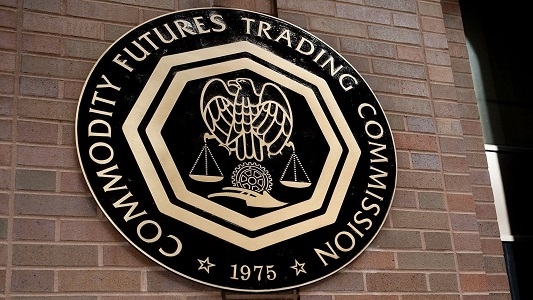Passports for prosperity

Three new fund
passporting initiatives in the Asia Pacific region have similar aims to the successful
European UCITS framework. What links the separate initiatives is a will to
break down national barriers and open up capital market flows, thereby supporting
growth, liquidity and efficiency. They should also improve investor choice and
encourage the circulation of jobs and regional expertise.
ASEAN’s Collective
Investment Schemes (CIS) Framework was the first to go live in August 2014,
allowing the cross-border distribution of funds between Singapore, Thailand and
Malaysia.
Hong Kong and
Mainland Mutual Recognition of Funds (MRF) was implemented with much fanfare in
July 2015 and allows the distribution of investment funds within Hong Kong
and the Chinese mainland.
APEC’s Asian Region
Fund Passport (ARFP) will launch sometime in 2017 with the other participating
countries of South Korea, New Zealand, Singapore, Thailand and more recently
the Philippines and, the latest to join in September 2015, Japan. Australia has
led the charge on the ARFP under the APEC banner.
The potential gains
for Asia's capital markets are indeed significant. The APEC Policy Support Unit
has calculated that its Asian Region Fund Passport (ARFP) could save the
region’s investors $20bn annually in fund management costs once it is up and
running, as well as offering higher investment returns at the same or lower
degree of risk.
Early learning
However, all these schemes
are experiencing teething problems. Most issues either stem from the fact that
they remain somewhat limited or that the makeup of markets in Asia remains far
more diverse than in Europe. It obviously has no political (let alone monetary)
union, meaning that multiple Asian financial and regulatory regimes remain far
from harmonised. The issues are of a higher order than those of Europe
pre-UCITS; it’s certainly no easy feat.
To date, only 13
funds have been recognised by their home jurisdictions as qualifying for ASEAN
CIS. Hong Kong's MFR only has six northbound funds
(HK-based and marketed in China) that have
been approved as of 15 April, along with 32 southbound funds.
AFRP was originally
pencilled in for launch in 2016 but this was delayed for a year. The biggest
issue for ARPF is arguably the different taxation methods of each country,
creating an uneven playing field for competing funds. ASEAN CIS is also
operating with added complications of country-specific tax rules.
A successful
passport scheme may have to rule that passport funds are not subject to tax, or
withhold tax on distributions from the passport fund and investee companies,
according to PwC.
Much work also
needs to be done to harmonise regulation, reducing the barriers to entry to
schemes and the associated operational difficulties. Different timeframes and
requirements for application processes as well as multiple monitoring and
reporting procedures are creating challenges for firms hoping to participate,
according to BNP Paribas Securities Services.
The schemes
currently operating have also experienced issues around currency rules and limits
placed on qualifying schemes. Strict currency rules in Malaysia and Thailand
are at least a contributory reason for the slow uptake of ASEAN CIS, making it
difficult to distribute share classes in non-domestic currencies in these
countries. China also has restrictions on foreign exchange. For the ASEAN CIS,
funds can only invest in a limited set of assets classes: transferable
securities, money market instruments, deposits, units of other CISs and
financial derivatives.
The rules for China
and Hong Kong's MFR are also tight, with the biggest constraint being that at
least 50% of capital invested in the funds must be sourced from the home
jurisdiction.
Progress
Myriad problems
there may be, but the good news is that most are being tackled head on. For
example, Singapore has recently forced attention on the issue of taxation by
refusing to sign an ARFP memorandum of understanding in September 2015 (although
it has continued to play a part in discussions).
The Singaporean
stance seems to have had the desired effect, and APEC is soon to release the
results of its benchmarking and mapping exercise to identify taxation issues in
each economy that could impede the competitiveness of the ARFP.
In September 2015,
regulators in the three countries participating in the ASEAN CIS reformed the
review process that allowed equity or plain debt issuers to distribute the same
prospectus for multiple jurisdictions,based on a single ASEAN-wide set of disclosure standards.
ASEAN is also
considering an extension of the scheme to cross-listing and offering of real
estate investment trusts (REITs) and infrastructure funds as well as the
feasibility of enhancing the cross-border private placements regime. China and
Hong Kong are also considering an easing of their rules and there is reason to
believe that this may happen in the moderately near future, according to the
Association of Luxembourg Funds Industry (ALFI).
UCITS
UCITS took 25 years to achieve the success it enjoys today. Given the lack of a common supervisory committee, it is questionable that creating an Asian passporting scheme of similar depth is possible but it is unlikely that its gestation will be as long.
Asian economies are developing at pace and they have proven ability to
bring new products and ideas to market at similar or increased speed. As late
as 2012, some market participants were doubtful that Asia would develop a
viable passporting scheme at all – four years later there are three.
Assuming that the
initiatives continue to gather momentum, and more countries think it is worth
taking the plunge, there's huge potential for success.
One criticism that has been widely touted about schemes, mainly the AFRP, has been the absence of China. However, Ching Yng Choi, who heads up the Asia office at ALFI, says that they may well join at a later date: "We all see the potential of China joining but it's not essential to a scheme's success.
China has its own agenda
led with mutual recognition of funds and Stock Connects. It is watching its
development from outside and it may decide to join in the future."
While it may take
some time before all the kinks are ironed out, with an honest appraisal of the
current problems and goodwill from individual countries to overcome challenges,
an Asia fund passport that matches the success of UCITS is just a matter of
time.
Found this useful?
Take a complimentary trial of the FOW Marketing Intelligence Platform – the comprehensive source of news and analysis across the buy- and sell- side.
Gain access to:
- A single source of in-depth news, insight and analysis across Asset Management, Securities Finance, Custody, Fund Services and Derivatives
- Our interactive database, optimized to enable you to summarise data and build graphs outlining market activity
- Exclusive whitepapers, supplements and industry analysis curated and published by Futures & Options World
- Breaking news, daily and weekly alerts on the markets most relevant to you




